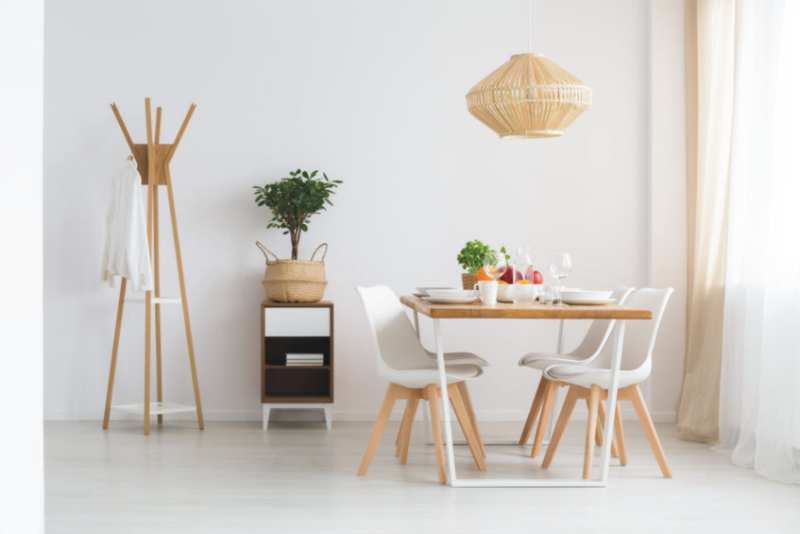
The simple answer is someone who uses minimalism. But this answer doesn't tell you enough. You can also add to it by telling what minimalism is. It is a tool for making things more efficient by simplifying them. For example, every aeronautical engineer must think like a minimalist. This is because useless components will degrade the performance of the aircraft. It will also add cost and complication while giving nothing of value.
In life, minimalism is a tool to make life easier by simplifying it. This gives a better description of a minimalist, but it could be even better. Also, minimalism varies from one minimalist to the next. But many traits are common to minimalists. Here are some traits that define a minimalist.
A minimalist is a utilitarian
A minimalist doesn't keep useless things. Every possession must have a use, even if that use is decoration. Devices that don't work, clothes that don't fit, and stale food have no place in a minimalist's home. Also, a minimalist doesn't need the latest upgrade to a gadget if the old one works fine. To a minimalist, any useless possession is as good as garbage.
A minimalist doesn't overvalue material things
To a minimalist, material objects are only as valuable as their use. If a minimalist buys fitness equipment, then the minimalist will use it. The minimalist doesn't expect the equipment to give any motivation to exercise. Otherwise, that would be seeing the equipment for more than what it is.
Also, the minimalist wouldn't consider any possession as "too good to use". That would be over-valuing it while rendering it useless. A minimalist doesn't want useless possessions. So the minimalist would use the fine silverware to eat off the fine chinaware. After all, that's what they are for.
A minimalist is the opposite of a hoarder
The mindsets of a minimalist and a hoarder are polar opposites. A minimalist gets rid of useless things that a hoarder would be afraid to throw away. A hoarder might see every bottle cap as a treasure and every used jar as a gem. The hoarder over-values these things regardless of the horrible mess that they make.
The minimalist sees these things for exactly what they are (garbage) and treats them as such. The minimalist knows that the empty space is worth more than the garbage in it. Also, overcrowding any space will degrade its look and function. The minimalist also knows this. So the minimalist will get rid of anything that outlasts its usefulness.
A minimalist is also the opposite of a shopaholic
A minimalist is also the opposite of a shopaholic. This is not only because many shopaholics also hoard things. But also because a shopaholic over-values things that he or she doesn't have. The shopaholic often expects the merchandise to bring happiness or self-improvement. Sometimes the shopaholic wants to buy it and doesn't even have a reason for doing so.
In contrast, the minimalist doesn't expect happiness from the merchandise. The minimalist knows that happiness comes from activities and experiences. The minimalist also knows that an object is only worth the use you get out of it. So the minimalist will only buy something if he or she needs to use it.
A minimalist does not condone deprivation
Many people think minimalism is about deprivation. But the minimalist knows that this isn't true. Deprivation is about removing useful things, but the minimalist only removes useless things. The minimalist intends to simplify life and knows that deprivation complicates it. For example, lack of something that works as a bed can lead to lost sleep and chronic fatigue. This shows why deprivation opposes minimalism.
A minimalist is efficient
The minimalist is efficient with space by not cluttering it with useless things. The minimalist is also efficient with time by avoiding things that waste it. Also, the minimalist doesn't like to waste money on things that he or she doesn't need. By not wasting resources, the minimalist lives an efficient life. This efficiency lets the minimalist spend more resources on things that he or she values.
A minimalist lives on his or her own terms
The minimalist doesn't need to keep up with the latest trends. This is because the minimalist has his or her own style. The minimalist doesn't try to keep up with or outdo the Joneses. These status contests are a waste of money and time. Also, there is no benefit for the winner, if there is a winner. A minimalist is counter-culture and doesn't see the need to follow the crowd. So minimalists follow their own paths to happiness and live on their own terms. This is a path to freedom and happiness.
A minimalist is content
People start their transition to minimalism by getting rid of things. And their quality of life improves when they do. So, if they improve their lives by removing things, then they had too many. As they remove things, they go from having too many things to having everything they need. And if you have everything you need, you feel comfortable. But if you are comfortable, then extras will not make you more comfortable. Here are some examples:
If you are fully hydrated, then drinking more water will not make you more comfortable.
If your room is the right temperature, then making it warmer or cooler will not make you more comfortable.
If you are comfortable sleeping on a full-size bed, you don't need a king-size.
So they realize that they have everything they need and that more will not add extra comfort. Knowing this replaces all envy and greed with contentment. It is a level of contentment that many people have never felt. This contentment also comes with another revelation. It is that any increase in happiness can only come from intangible things.
A minimalist seeks intangible things
Contentment teaches the minimalist that happiness comes from intangible things. These things include the following:
Time spent with people who they enjoy being around
Doing and experiencing things that they enjoy
Doing things that make them feel better about themselves
Moments of tranquility and inner peace
Counting their blessings
Minimalists will pursue these things instead of material things. After all, they feel satisfied with the possession that they have.

In summary here are some major traits that help to define minimalists:
A minimalist is a utilitarian.
A minimalist doesn't overvalue material things.
A minimalist is the opposite of a hoarder.
A minimalist is also the opposite of a shopaholic.
A minimalist does not condone deprivation.
A minimalist is efficient.
A minimalist lives on his or her own terms.
A minimalist is content.
A minimalist seeks intangible things.
These show that a minimalist is not infatuated with material things. The minimalist understands that happiness comes from intangible things. So the minimalist follows his or her own path to happiness and fulfillment. Many people would be happier if they learned from minimalists.
